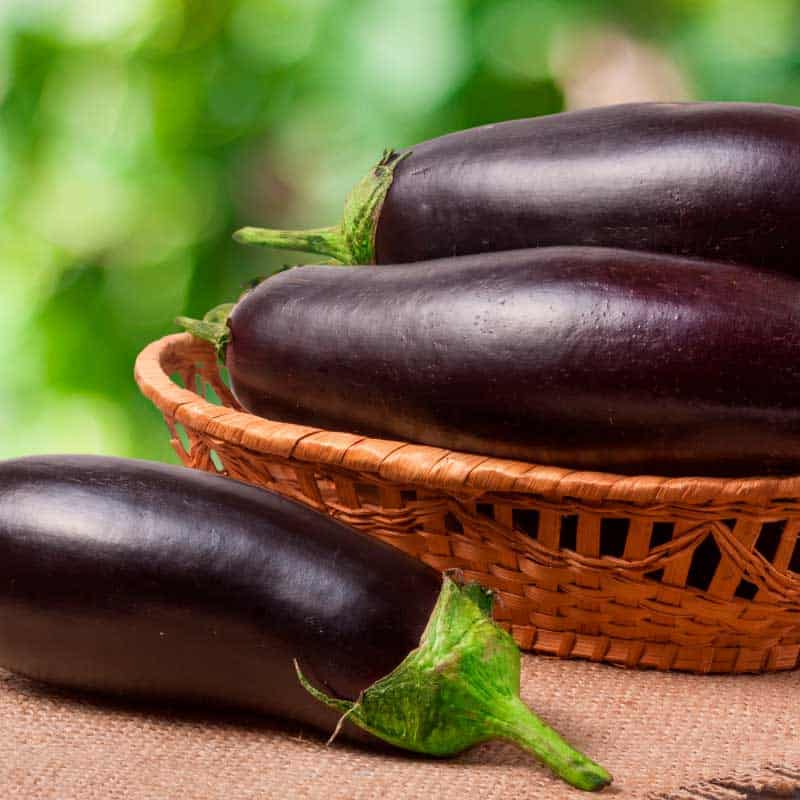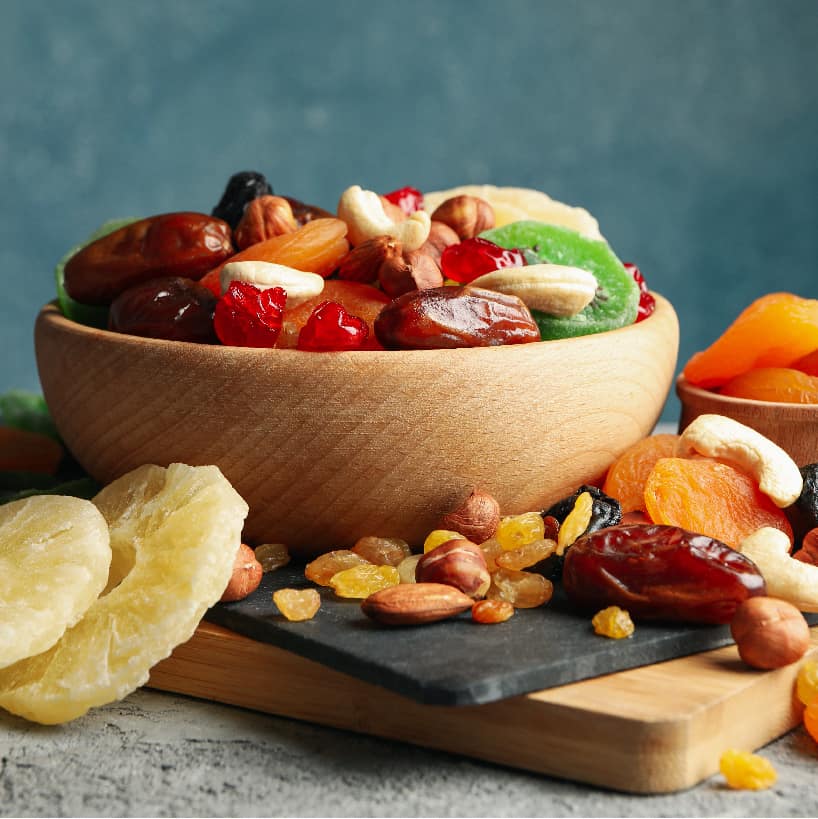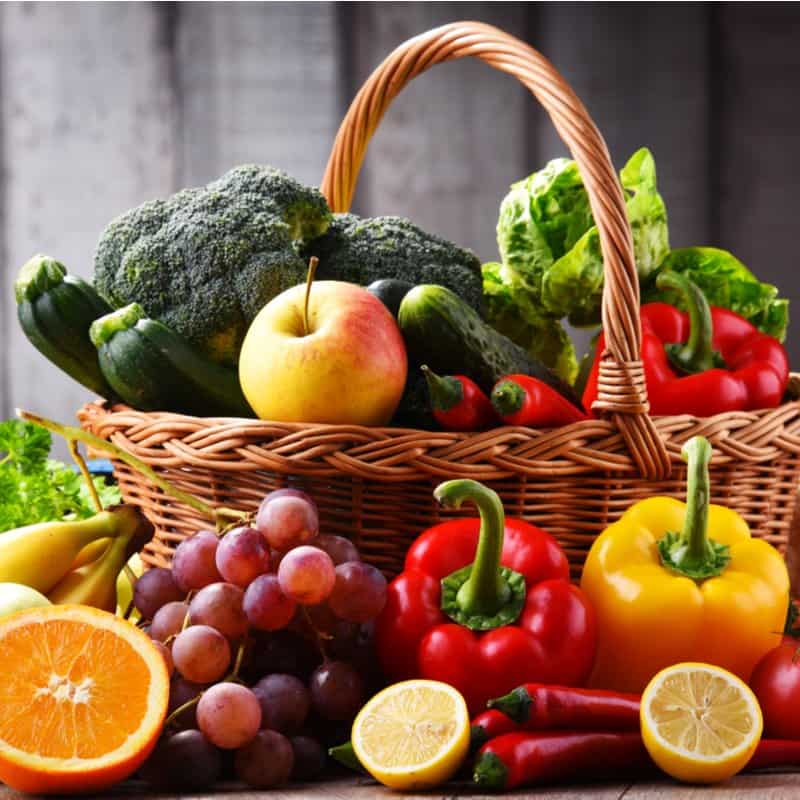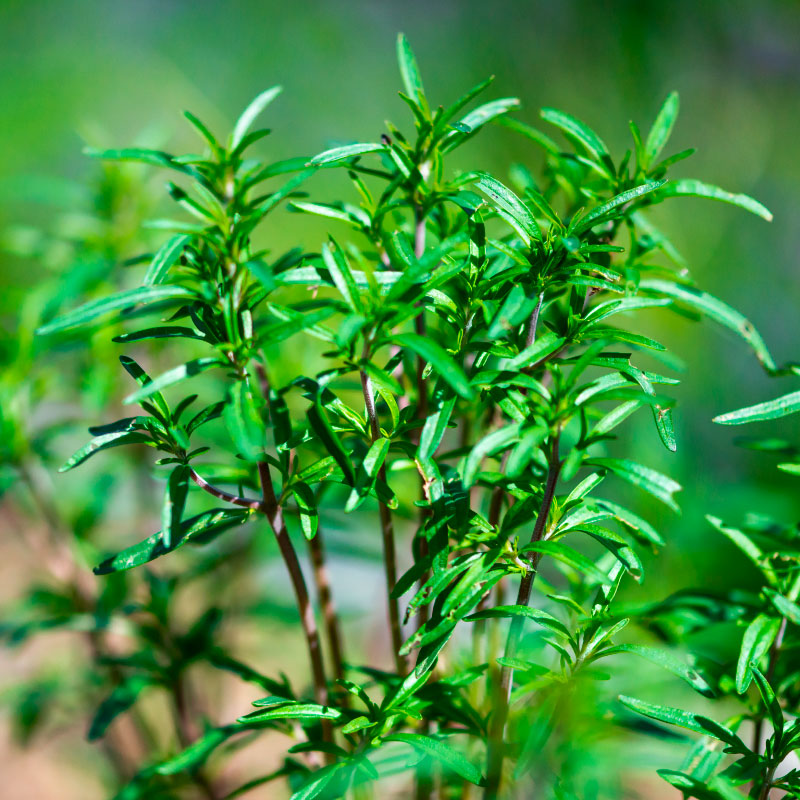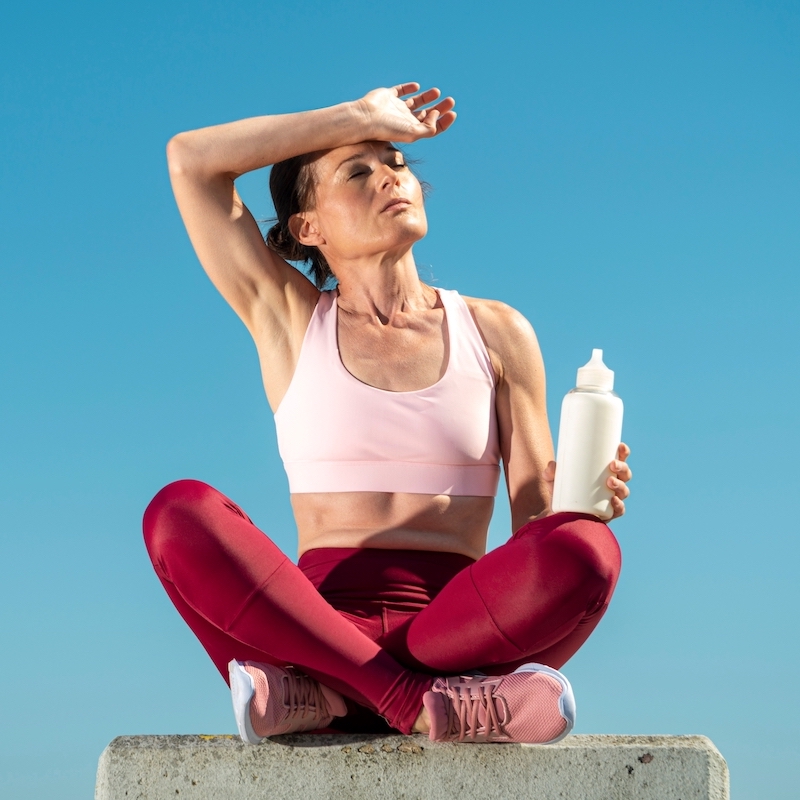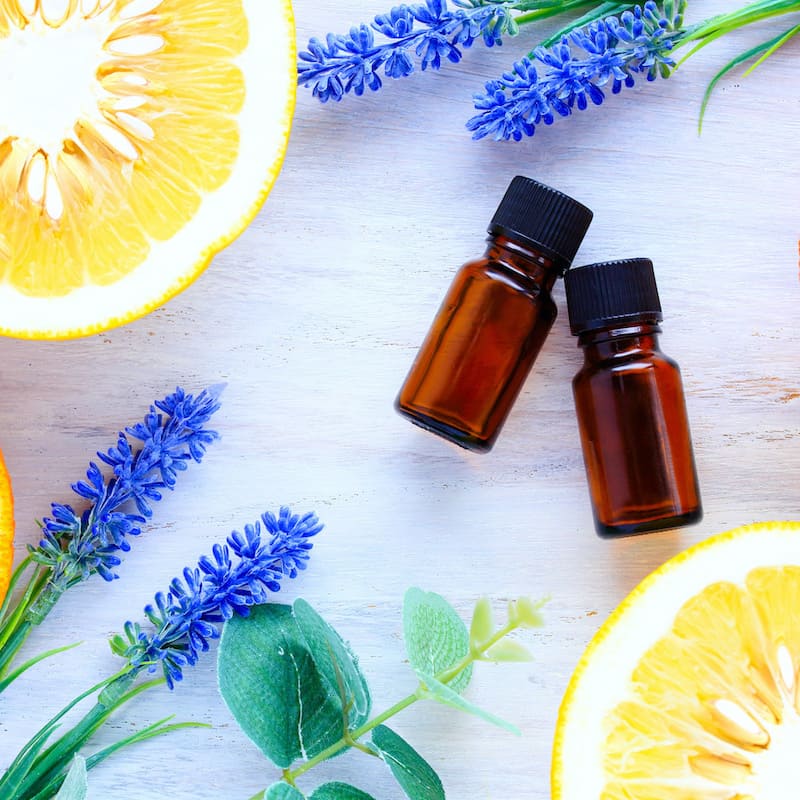This Dr. Axe content is medically reviewed or fact checked to ensure factually accurate information.
With strict editorial sourcing guidelines, we only link to academic research institutions, reputable media sites and, when research is available, medically peer-reviewed studies. Note that the numbers in parentheses (1, 2, etc.) are clickable links to these studies.
The information in our articles is NOT intended to replace a one-on-one relationship with a qualified health care professional and is not intended as medical advice.
This article is based on scientific evidence, written by experts and fact checked by our trained editorial staff. Note that the numbers in parentheses (1, 2, etc.) are clickable links to medically peer-reviewed studies.
Our team includes licensed nutritionists and dietitians, certified health education specialists, as well as certified strength and conditioning specialists, personal trainers and corrective exercise specialists. Our team aims to be not only thorough with its research, but also objective and unbiased.
The information in our articles is NOT intended to replace a one-on-one relationship with a qualified health care professional and is not intended as medical advice.
Banana Nutrition: Gut Healer or Blood Sugar Disruptor?
July 29, 2024
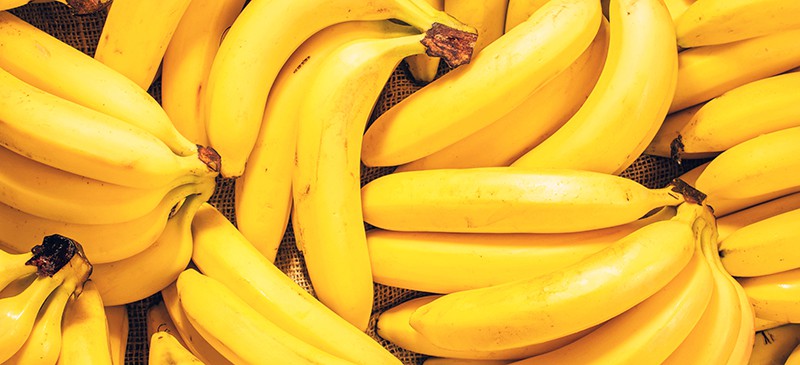
Bananas can be a perplexing food. On the one hand, we know that banana nutrition is high in sugar, and sugar is anything but good for us.
On the other hand, we also hear that they are full of important nutrients that can help promote better health.
So what’s the verdict on banana nutrition and whether it’s healthy or not?
Bananas are indeed a great source of several essential nutrients, including potassium, magnesium, fiber and more.
They are also an ideal food for athletes and those who exercise regularly thanks to their concentration of quick-acting carbohydrates. These carbs can help bump up energy levels and keep you going all day long.
In fact, bananas contain a convenient source of energy perfect for right before a workout. They are also rich in vital post-workout nutrients that can help repair muscle tissues and balance water retention.
All of these benefits crammed within one roughly 100-calorie piece of fruit sounds like a pretty good deal, but bananas can also be tricky for certain people and may not be the best fruit of choice for everyone.
Because bananas contain a relatively high amount of sugar and carbohydrates, yet practically no banana protein or healthy fats, they can quickly spike blood sugar levels. This is a problem for anyone who has a form of insulin resistance, including those who are prediabetic or have diabetes.
Therefore, bananas make a great snack for most — but not all.
If you are someone who is otherwise healthy and relatively active, bananas are a smart and beneficial food choice to add to your diet. However, if you are looking to lose weight or have difficulty managing blood sugar levels, you may want to go with other fruit and food options over bananas instead.
Banana Nutrition Facts
So how many calories and carbs are in a banana, and are bananas healthy? Take just one look at the medium banana nutrition facts, and it’s easy to see why this super fruit is so nutritious.
Not only are bananas good for you, but they’re also high in several key vitamins and minerals, including vitamin B6, vitamin C, manganese and potassium.
One medium banana (about 118 grams) contains approximately:
- Calories: 105
- Total Carbohydrates: 26.9 g
- Fiber: 3.1 g
- Sugar: 14.4 g
- Total Fat: 0.4 g
- Saturated Fat: 0.1 g
- Polyunsaturated Fat: 0.1 g
- Monounsaturated Fat: 0.04 g
- Protein: 1.3 g
- Sodium: 1.2 mg (<1% DV*)
- Vitamin B6: 0.4 mg (24% DV)
- Manganese: 0.3 mg (13% DV)
- Copper: 0.1 mg (11% DV)
- Vitamin C: 10.3 mg (11% DV)
- Potassium: 422 mg (9% DV)
- Riboflavin: 0.1 mg (8% DV)
- Magnesium: 31.9 mg (8% DV)
- Pantothenic Acid: 0.4 mg (8% DV)
- Folate: 23.6 mcg (6% DV)
- Niacin: 0.8 mg (5% DV)
*Daily Value: Percentages are based on a diet of 2,000 calories a day.
Banana nutrition also contains small amounts of phosphorus, vitamin A, vitamin E, vitamin K, calcium, iron, zinc and selenium.
Health Benefits
1. Boosts energy
Bananas are a great pick-me-up snack because they provide carbohydrates in the form of quick-releasing sugars that your body can use for instant energy. After an intense workout, your body uses these carbohydrates to refuel and repair muscle fibers that have been broken down.
After exercising, banana nutrition contains sugar molecules that are able to reach muscle tissues right when they are needed most. This helps restore glucose reserves quickly, which is vital for giving your body the energy that it needs to gain muscle and strength.
Bananas are useful either before exercise or immediately after, providing your body with the sufficient banana carbs and nutrients to help promote recovery.
2. Loaded with potassium
Bananas are one of the best sources of potassium in the world. Potassium is another nutrient that is crucial for those who are physically active, but there are plenty of benefits of potassium for everyone else to enjoy as well.
Potassium acts as an electrolyte, promotes circulatory health, helps manage blow flow and hydration levels within the body, and makes it possible for oxygen to reach your cells.
Potassium is useful in preventing high blood pressure and may help reduce the risk of heart disease and stroke by regulating circulation, sodium and water retention within the body. It also helps lower blood pressure by counteracting the effects of sodium within the blood to keep your heart working efficiently.
Fortunately, studies have shown that the best way to optimize the potential potassium benefits is to consume more of it through whole food sources, such as fruits and vegetables.
Potassium also assists in the prevention of muscle cramps following exercise and helps heal and build muscle more effectively. This makes it an especially important nutrient for anyone who is physically active as well as those recovering from an injury.
3. Improves digestive health
Each banana contains about three grams of fiber. The fiber in banana can help support regularity to prevent constipation, bloating and other unwanted digestive symptoms.
Banana fiber helps restore maintenance of regular bowel functions because it binds to waste and toxins within the digestive tract, aiding in their excretion from the body.
According to a review conducted by the Department of Internal Medicine and Nutritional Sciences Program at the University of Kentucky, fiber boasts a long list of other digestive benefits as well. In fact, it may also be beneficial in the treatment of gastoesophageal reflux disease, intestinal ulcers, diverticulitis, constipation and hemorrhoids.
4. Enhances mood
Bananas contain an amino acid called tryptophan. Tryptophan is used to produce serotonin, one of our main “happy hormones.”
Healthy levels of serotonin work to lift your mood and prevent mood disorders, such as anxiety and depression.
Banana nutrition also includes antioxidants that help with the release of dopamine within the brain, another mood-enhancing hormone.
Regularly consuming bananas can increase your energy, prevent fatigue and maintain healthy levels of these key neurotransmitters to boost your mood.
5. Affordable, convenient and healthy snack
Bananas are low in calories.
Compared to many other processed or high-calorie snack choices, bananas make a great healthy snack on-the-go because they are pre-portioned and full of nutrients and fiber.
This makes bananas a good choice for anyone who is watching his or her calorie intake in order to lose weight.
Additionally, while it may be difficult to clean, prepare and portion other fruits like berries to enjoy as a healthy snack, bananas are easily portable and don’t need to be refrigerated.
Their price is another one of the top benefits of bananas. They are one of the least expensive varieties of fruit that you can buy, and even opting for organic banana nutrition is usually very affordable.
Try keeping bananas at work in your desk, in your gym bag or even in your car as an emergency snack to ward off hunger when cravings strike.
Pair them with a healthy source of protein or fat like almond butter, Greek yogurt or oatmeal to maximize the health benefits and keep blood sugar levels steady.
6. Good source of manganese
Adding a serving or two of bananas to your daily diet is a great way to bump up your manganese intake. Manganese is important for many functions within the body, including maintaining healthy skin, keeping the skeletal structure strong, maintaining proper brain function and reducing free radical damage.
Studies have shown that manganese can help with healthy brain function and may aid in the prevention of conditions like epilepsy and Parkinson’s disease.
Some studies also show that manganese supplementation could help increase bone mineral density and may even aid in the prevention of conditions like osteoporosis.
Plus, manganese also acts as an anti-inflammatory and antioxidant, two crucial properties that are useful in naturally slowing aging since they reduce free radical damage and oxidative stress.
7. Promotes weight loss
Bananas are low in calories yet rich in dietary fiber, an important nutrient that helps keep you feeling fuller for longer. In fact, some studies have found that a higher intake of fiber-rich fruits may be associated with increased weight loss over time.
For this reason, bananas are often recommended as a staple ingredient in a healthy weight-loss diet for those looking to shed a few extra pounds.
Plus, because bananas contain high amounts of fiber and have a high water content, they can help fill you up and keep you from snacking on other processed foods between meals. This makes them a guilt-free option to satisfy your sweet tooth without derailing your weight loss efforts in the process.
8. Improves kidney function
Bananas are loaded with potassium, a micronutrient that plays a central role in nearly every aspect of health, especially when it comes to kidney function. Some research suggests that eating more bananas could help preserve kidney function and may even be protective against kidney disease.
For example, one study published in the International Journal of Cancer showed that eating a higher amount of bananas per month was associated with a lower risk of developing renal cell carcinoma.
Note that many who have kidney disease may be recommended to moderate potassium intake by limiting consumption of fruits such as bananas, as too much potassium can be harmful in some cases. If you have kidney disease or have high levels of potassium, consult with your doctor or dietitian before increasing your intake of potassium-rich fruits and vegetables, such as bananas.
9. Supports heart health
Bananas are brimming with several important nutrients that can help keep your heart healthy and strong, including both potassium and magnesium.
Potassium, in particular, helps regulate blood pressure to prevent excess strain on the heart muscle. Not only is a higher intake of potassium linked to a lower risk of stroke, but it may also help decrease the risk of coronary heart disease and heart attack as well.
Bananas also contain a hearty dose of magnesium. Magnesium is involved in over 300 enzymatic reactions and is essential to heart health as well.
In fact, a magnesium deficiency may correlate with serious chronic conditions, such as high blood pressure, diabetes, and high levels of cholesterol and triglycerides.
10. Helps protect against diabetes
Data from the Nurses’ Health Study II and Health Professionals Follow-up Study found that banana consumptions is associated with a reduced risk of diabetes. This effect also has been shown in mice, with one 2022 study finding that banana peel dietary fibers have anti-diabetic effects.
11. May help manage asthma
A 2007 study published in the European Respiratory Journal looked at a population-based survey of 2,640 children aged 5–10 in the U.K., gathering information on fruit consumption and asthma symptoms. The researchers concluded that “bananas may protect against wheezing in children.”
Uses in traditional medicine
Bananas were believed to first be grown and eaten in parts of Southeast Asia and Papua New Guinea thousands of years ago, sometime around 5000 B.C., according to some sources. Records also show that bananas were cultivated in regions of Africa and the nearby island Madagascar shortly after this time.
Bananas spread across regions of the Middle East and North Africa, including areas of Egypt and Palestine, around the ninth and 10th centuries. They were even mentioned in some Ancient Islamic Texts.
When explorers from the Middle East and Europe began to travel to Central and South America, they brought bananas along with them on their journeys, introducing the fruit to an entirely new population.
Portuguese explorers were the first to bring bananas to newly discovered regions and populations in this area, where they are still widely consumed today.
Bananas were easily grown in the tropics of South and Central America, so they quickly began to be harvested in large quantities while their popularity spread up to North America.
Historically, nearly all parts of the banana plant were used medicinally. The flowers were used to treat ulcers and dysentery, and cooked flowers were given to diabetics to help regulate blood sugar.
Meanwhile, the sap of the plant was thought to help epilepsy, fevers, insect bites and hemorrhoids.
Today, areas of the Caribbean and Central and South America still grow high amounts of bananas, including Brazil, Ecuador and Colombia. However, India, Uganda and China are considered the three biggest exporting nations of bananas today.
While original wild bananas contained large seeds, the modern type of bananas that we eat are known as parthenocarpic fruits. This means their flesh swells and ripens without the seeds even needing to be fertilized.
Today, we see much smaller seeds in bananas and a more compact size than the bananas that were originally consumed.
Banana vs. apple
Apples and bananas are two of the most popular fruits on the market, thanks to their delicious flavor, accessibility and convenience. However, there are also several notable differences between these two fruits as well, especially when comparing the banana nutrition data to apple nutrition facts.
When comparing one medium banana to one medium apple, there are slightly more carbs in a banana and more calories in banana as well. There’s also more potassium in banana.
In fact, one medium apple contains only about half the banana potassium amount per serving.
Additionally, although apples contain a bit more sugar, they’re also higher in dietary fiber than bananas.
That said, both are high in vitamin C and can be included as part of a healthy, well-rounded diet to take advantage of the unique set of nutrients that each has to offer.
Banana vs. plantain
Bananas and plantains share quite a few similarities, and it’s easy to get these two tropical fruits confused.
Not only are they closely related, but they also look alike, share similar nutrient profiles, and contain several of the same important vitamins and minerals in each serving.
Plantains are starchier and contain much less sugar than the typical Cavendish banana nutrition profile. In fact, plantain nutrition contains a higher amount of carbs and calories.
It is also higher in key nutrients like fiber, vitamin A and vitamin C.
However, both are good sources of vitamin B6, potassium and folate, packing a comparable amount into each serving.
Plantains are also a bit more versatile than bananas.
While bananas are typically enjoyed raw or mixed into baked goods and smoothies as a sweet snack, plantains are usually cooked prior to consumption. They’re available in green, yellow and black varieties.
Plantains can be baked, boiled, grilled, mashed or even fried for use in stews, soups, chips and side dishes.
Worldwide, many nations do not make a distinction between bananas and plantains and use them almost interchangeably.
How to Use
Today, the Cavendish banana is the most common type of banana sold.
Bananas constitute a major staple food crop for millions of people living in developing countries today across Latin America, Africa, India and the South Pacific. They are an important crop because they grow in abundance year-round and are very inexpensive.
Bananas can be cooked in numerous ways depending on the type of cuisine. They are commonly fried, boiled, baked, blended, or sliced and “chipped” before being dehydrated.
Banana chips are a great addition to a grain-free granola to add a little extra boost of energy after a workout or when you hit that afternoon slump.
Note that it’s best to slice and dehydrate your bananas yourself whenever possible. Many “chips” you buy at the store — also known as Kerala banana chips — are often fried with hydrogenated oils that negate any of the potential banana nutrition benefits.
If you do decide to go for store-bought chips, double check the Kerala banana nutrition ingredients when purchasing, or try to get them from an organic market and ask what oil they use or if they are dehydrated.
While it’s ideal to eat as much organically grown food as you can, bananas are one of the fruits that are thought to contain less harmful pesticides than some other fruits. This is because bananas are enclosed in a thick peel.
This helps block them from absorbing many of the harsh chemicals and toxins that are sprayed on crops.
They also grow high up in trees where they are generally safer from rodents, animals and certain bugs. As such, they are sprayed fewer with pesticides and herbicides than many other foods.
Recipes
Bananas are extremely versatile in recipes. They can even stand in for things like sugar, refined oils, processed flours and more.
Because bananas are sweet and contain moisture, they make a great substitute ingredient in recipes for less healthy foods and added sugar.
You can also eat bananas plain, have them with nut butter, or use them in recipes like healthy pancakes, muffins, and breads.
Here are a few tasty recipes that make it easy to enjoy the many benefits of bananas in your daily diet:
- Gluten-Free Banana Bread
- Banana Pudding
- Paleo Zucchini Brownies with Dark Chocolate Chips
- Banana Nut Muffins
- Banana Pancakes
- Strawberry Banana Smoothie
Risks and Side Effects
So are bananas bad for you? As mentioned earlier, even though there are plenty of banana health benefits to consider, they may not make the best food choice for everyone.
For example, those who have trouble keeping blood sugar levels at a healthy state or who are trying to lose weight may need to keep consumption in moderation in order to maximize the potential health benefits of bananas. Compared to other fruits like berries, citrus fruits and kiwi, there is much more sugar in banana.
Plus, each serving contains less fiber and a higher amount of banana calories and banana carbs. Fiber is crucial for helping slow down the absorption of sugar into the bloodstream to keep blood sugar levels stable.
Berries are a great example of a fruit with a healthy ratio of sugar to fiber. They are relatively low in sugar for a fruit, yet are very high in fiber and beneficial antioxidants.
For this reason, it may be best for those looking to manage weight or blood sugar levels to stick with consuming berries and other forms of low-sugar/high-fiber fruits like green apples, kiwis and citrus.
These fruits have a lower glycemic index than bananas. Thus, they have a much less dramatic impact on blood sugar levels.
Interestingly, however, despite the banana carbohydrate amount, studies show that bananas contain a lower glycemic index and more slowly absorbable sugars when they are under-ripe. If you struggle to keep your blood sugar stable, selecting green bananas over fully ripe fruits may be a better option to enjoy the multitude of banana benefits.
This is because under-ripe bananas contain more resistant starches than the ripe banana. Resistant starch breaks down more slowly in the body.
Another thing to be aware of is that banana fungus can crop up from time to time, as it did in Colombia in 2019. This can cause the price to rise if fungi spread.
Some people may also wonder: Can dogs eat bananas?
The short answer is yes, most dogs can eat bananas safely and even provide benefits, but they can affect blood sugar levels and digestion due to the sugar and fiber they contain.
Final Thoughts
- Take a look at the banana nutrition facts, and it’s easy to see why this super fruit is so good for you. Banana nutrition is high in fiber, vitamin C, vitamin B6 and potassium, plus a host of other important vitamins and minerals.
- Just a few of the potential banana benefits include improved energy levels, better digestion, enhanced mood, increased weight loss, and improved heart and kidney health.
- Enjoy a banana as is for a healthy, on-the-go snack, or add bananas to baked goods, pancakes, puddings and more.
- However, compared to other fruits, there are more calories and carbs in banana, so it’s important to keep intake in moderation to help manage your blood sugar levels and weight.



